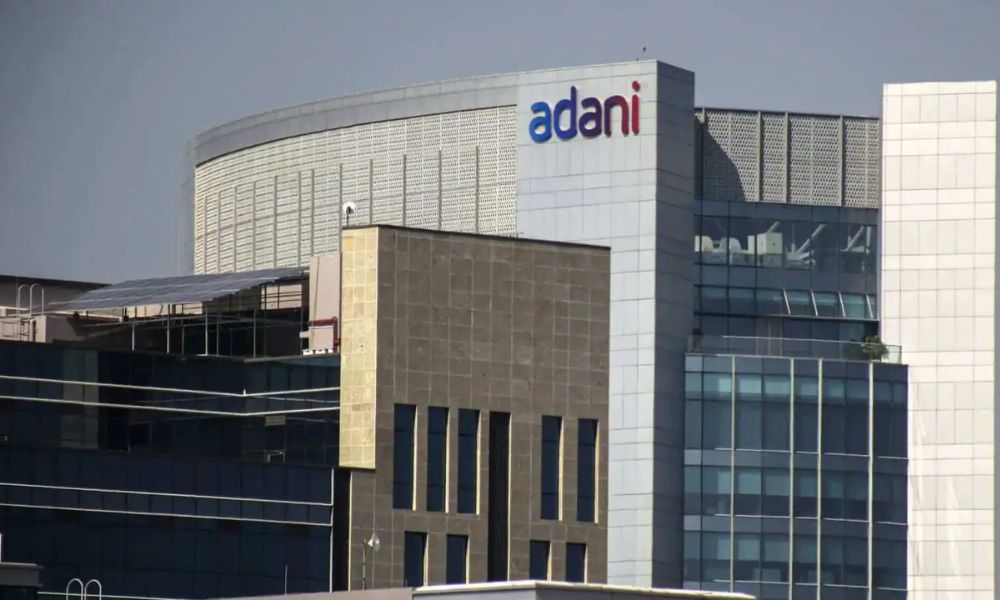
Over three decades, billionaire Gautam Adani built a vast infrastructure network across India that's become indispensable for both local businesses and foreign firms like Apple Inc. and Amazon.com Inc.
That control over parts of the country's transport links, coal production and private electricity supply has proved a trump card for the Adani Group as it attempts to recover from the fallout of fraud allegations by Hindenburg Research. The short seller's January report knocked as much as $153 billion off the Adani Group's value, and set off regulatory probes in India. Key findings are expected in coming weeks.
| Are you a Tax Lawyer in USA? 👉Transform Your Brand: Click for Metamorphosis👈 |
An overarching question lingers: What are Adani's long-term prospects after its Hindenburg crisis?
Data compiled by Bloomberg show that Adani has the highest market share within the private sector in most of the Indian sectors in which it operates. Adani companies handled about 43% of all shipping containers in this nation of 1.4 billion, a third of all coal transported, about 22% of private thermal power capacity, the largest number of solar and wind plants, and 51% of India's private electricity transmission. His airports help move nearly 75 million people annually, more than the population of France, and his ambitions are now expanding to doorstep delivery and logistics.
These numbers — based on government data and the group's financial reports — describe a ports-to-power conglomerate that's running vast swathes of the world's fastest-growing major economy.
The conglomerate's large size means that any major upheaval to its infrastructure has the potential to ripple through the Indian economy. The group has denied all Hindenburg's allegations, but the tycoon lost his position as Asia's richest man and his conglomerate faced funding challenges soon after the report was published in late January. While its stocks are recovering and share sales helped raise cash, the crisis highlighted the challenges of keeping such a sprawling infrastructure empire afloat.
Critics including opposition political parties have raised questions about what they say are close links between Adani and Prime Minister Narendra Modi's government, although the billionaire has repeatedly denied that his firms receive any special treatment. Adani says his group's strategy is to wed itself to the Indian growth story — and infrastructure is becoming increasingly central to that boom.
Components for Apple products could make their way through Adani ports. Amazon packages might pass through Adani transportation systems. Any stoppages by Adani Power's plants could put the lights off in some areas, affecting homes and also factories. The conglomerate's influence is also growing dramatically in the renewable energy space, where it's the leading player and is outshining even state-owned enterprises. So even as regulatory uncertainties loom, the Indian economy's dependence on Adani could allow his profits to keep growing.
"These are not boom and bust industries," said Nirmalya Kumar, Lee Kong Chian professor of marketing at Singapore Management University, who has served on the boards of several Indian companies. "The return on capital is steady and has little risk because ultimately, these assets will see increasing usage and thus cash flows with the growth of India."
In an email, the Adani Group said its ability to execute mega infrastructure projects fast and at a low cost has helped drive growth and margins. The conglomerate's business is on "a solid footing," leverage ratios are at comfortable levels and it follows all laws, the statement said.
One of the biggest names in emerging markets investing, Rajiv Jain, who bought into the conglomerate after the Hindenburg report, has said that he was attracted by the group's infrastructure assets.
Early on, the Adani empire astutely avoided entering into areas where rivals like the Tata Group or Mukesh Ambani's Reliance Industries Ltd. were already deeply entrenched. Instead, it sought to control the value-chain for a sector and then relentlessly invested in inter-connected businesses. In thermal power, Adani owns coal mines in the heart of India, Indonesia and Australia. These coal blocks are transported via Adani ships to Adani ports and then are fed into Adani Power's plants across the country. The power plants then supply electricity through Adani Transmission's cables into households and businesses across the country. Source
| Are you a Tax Lawyer in USA? 👉Transform Your Brand: Click for Metamorphosis👈 |